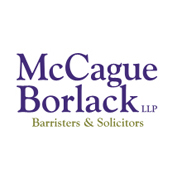The Cumberland Group was made up of five different entities, which together held legal title to the remaining unsold residential condominium units. In 2016, all entities of the Cumberland Group filed a Notice of Intention to Make a Proposal under s section 50(4)(1) of the Bankruptcy and Insolvency Act, R.S.C., 1985, c. B-3 (the “BIA”). The Court ordered proceedings against the Cumberland Group to be stayed per the Companies' Creditors Arrangement Act, R.S.C. 1985, c. C-36 (the “CCAA”). The BIA proceedings were continued under the CCAA. As a result, there were certain federal priority charges over the assets owned by the Cumberland Group.2
The Construction Lien Act has been amended from the time of this decision. The name was changed to the Construction Act. However, the present issue arose under the previous version, and accordingly, this comment will refer to the act as the CLA throughout. The amendments made to the CLA did not affect the section 9(1) vendor's trust under the act, and therefore this decision remains the binding authority.
Factual Background
The Respondent, Cumberland Group, was a residential condominium developer, and contracted with the appellants in this case. During the course of the appellants' work, they accumulated outstanding invoices of $3,864,428.72 owed to them by the respondent.1
The CCAA Proposal Trustee sold the assets of the Cumberland Group.3 The proceeds of the sales were in excess of $11 million, and stood in the place of the assets in order to determine any claims and encumbrances.4 Some of these proceeds were used to cover federal priority and mortgage charges. The net proceeds after these expenses were $4,246,963.46.5
The appellants claimed a section 9(1) CLA trust over the remaining proceeds to the extent of their unpaid invoices, and a motion was brought under the CCAA to determine the validity of the trust. The motion Judge rejected the trust claim, holding that a section 9(1) CLA trust could not arise as the sale proceeds were not received by the “owners” but instead the CCAA representative.
...constitutes a trust fund for the benefit of the contractor. |
The Appeal
Section 9(1) of the CLA states when an owner sells their interest in a premises, the amount equal to the consideration received from the sale, reduced by the expenses arising from the sale, constitutes a trust fund for the benefit of the contractor.6
In a prior decision, the court held a section 9(1) CLA trust can be effective when the insolvency occurs under the BIA, and therefore “it follows that it may be effective when the insolvency is subject to the CCAA.”7 This was reasoned because both the BIA and CCAA are federal pieces of legislation to regulate insolvency, and therefore should affect provincial legislation in the same manner. The court concluded that nothing prevents a section 9(1) CLA “trust from arising on a sale which takes place after a CCAA filing” has taken place.8
The only limitation is that provincial CLA trusts will be inoperative to the extent it would frustrate the purpose of the federal law.9 In short, this means the federal charges over the assets, or proceeds of sale, take priority over the provincial charges. If there are assets or proceeds remaining after federal charges are addressed, the provincial charges remain operative.
A section 9(1) CLA trust properly arose in this case. The facts of this case met all qualifications of a section 9(1) CLA trust. First, the assets were sold by the owner and were merely facilitated by a representative.10 The control held by the representative over the purchase and sale process does not negate the fact that the owner sold their legal interest, in exchange for consideration which exceeded any expenses and mortgage debt.11
Secondly, the rules of federal paramountcy only resulted in the section 9(1) CLA trust becoming partially inoperative. The federal charges were given priority over the CLA, but after these charges were addressed, there were remaining proceeds which allowed a section 9(1) CLA trust to be established.12
...there was nothing barring this vendor's trust from becoming operative. |
The value of the consideration received was in excess of $11 million. After all priority charges under the Federal legislation (the CCAA) were paid, as well as all expenses paid by the vendor to discharge any mortgage indebtedness, total remaining proceeds of sale were $4,246,963.46. The appellants were owed $3,864,428.72. The Court held that the requirements of section 9(1) of the CLA had been met, and there was nothing barring this vendor's trust from becoming operative, and thus the Court accepted the appellants' argument that a vendor's trust in the amount of $3,864,428.72 was created.
Conclusion
The Court's decision, in this case, reinforces the commitment to ensuring both contractors and subcontractors are able to secure payment for any unpaid invoices for services and materials.
Clarification on the issue of paramountcy when both the CLA and the CCAA are applicable will undoubtedly lead to more contractors being able to adequately safeguard themselves against insolvent corporations. The decision clearly indicates the focus of section 9(1) of the CLA is on protecting the interests of contractors and is a positive judgment for all contractors across the province.
- Urbancorp Cumberland 2 GP Inc (RE), 2020 ONCA 197, at para 3. (Undercorp).
- Ibid, para 15.
- Ibid, at para 14.
- Ibid, at para 18 and 20.
- Ibid, at para 20.
- Construction Lien Act, R.S.O. 1990, c. C.30, s. 9(1).
- Supra, note 1at para 37; The Guarantee Company of North America v Royal Bank of Canada, 2019 ONCA 9, 144 OR (3d) 225.
- Supra, note 1 at para 45 and 37.
- Canadian Western Bank v Alberta, 2007 SCC 22, [2007] 2 SCR 3 at para 75; Ibid, at para 42.
- Supra note 1, at para 61.
- Ibid, at para 67.
- Ibid, at para 70, and 74.


